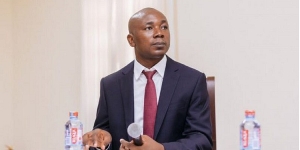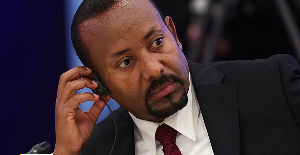The Volta Region has been ranked by the Narcotics Control Board as the leader in marijuana use and cultivation in the country.
NACOB says its research indicates a large number of the youth in the Volta Region have taken to cultivating marijuana, also known as wee. It explained ready market for the narcotic substance and its value appears to be the motivating factor.
Mr Jeremiah Joel Ghartey of the NACOB Educational Unit who revealed this on 3FM’s Community Connect said they are stemming the tide by adopting new strategies including educating people on the dangers involved in engaging in drug use and trafficking He was speaking ahead of the celebration of World Drug Day which falls on June 26. It is on the theme: “Listen First”.
Mr Ghartey said, “In previous times we were skewed towards making arrests all over the place. But now what we are doing is to engage in massive education to sensitize people especially the youth to desist from the practice.”
NACOB statistics in 2014 revealed about 50,000 people in Ghana are into drug abuse. Out of which 35,000 were listed as students from junior and senior high schools and tertiary institution aged between 12 and 35 years.
Fifteen thousand [9, 000 males and 6,000 females] are adults. Per the statistics, the three northern regions led in the use of the substance in 2014 with a total figure of 30,000, followed by Western Region, 4, 000; Brong- Ahafo Region, 2, 000; Greater Accra region, 5,000; Ashanti Region, 4,000; Eastern Region, 2,000; Volta Region, 1,300 and Central region, 1,700.
Mr Ghartey said NACOB is up to the task, saying it “is matching the sophistication that users and traffickers apply. The fight against drugs keeps getting higher and sophisticated. But NACOB is at par with the sophistication.”
He said NACOB has set up regional offices that are vigorously engaged in educating the youth, in the various communities to eschew drug use and trafficking.
“When people are informed, we expect that they will be able to make informed choices that will not lead them into trouble,” he said.
Regional News of Wednesday, 22 June 2016
Source: 3news.com













